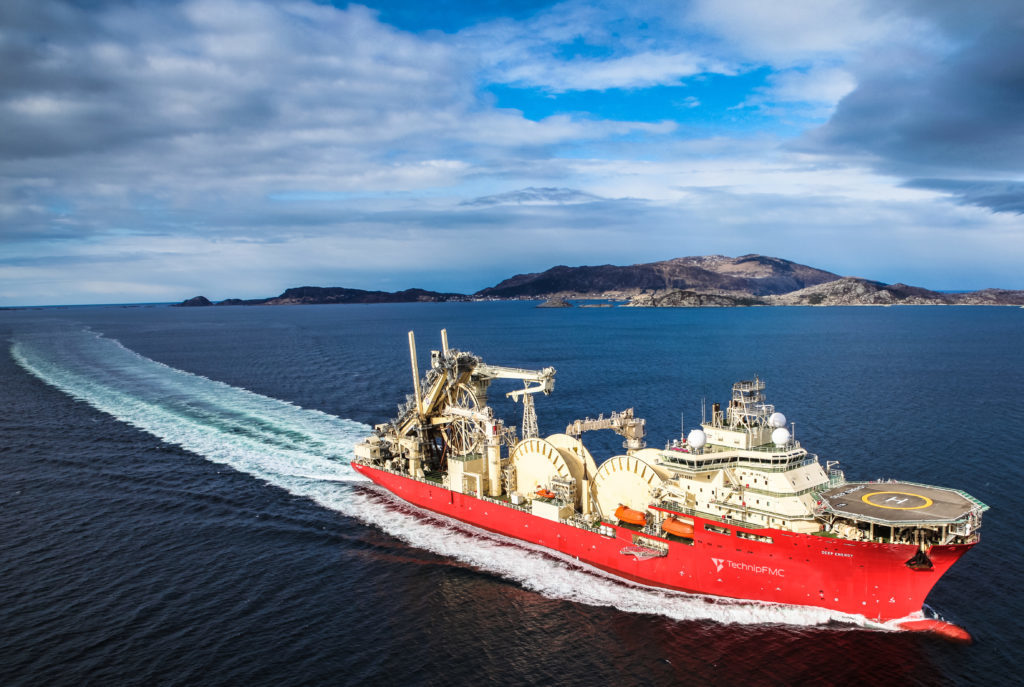
The boss at energy service giant TechnipFMC said yesterday that the North Sea is a “tremendous laboratory” for testing new ideas and technology.
Executive chairman Thierry Pilenko said some of the best ideas relating to digitalisation were coming from the region, which will be a testing ground for the firm’s next generation of products.
Mr Pilenko also said the North Sea was recovering from the downturn earlier than other parts of the world and that TechnipFMC expects more opportunities to arise there in the coming years.
But Mr Pilenko warned exploration needed to be ramped up to create a new wave of projects.
Speaking at the ONS conference in Stavanger, Mr Pilenko said: “If we look at the overall impact of the lower oil price, it was enormous in terms of restructuring.
“Some companies suffered bankruptcy, but in this environment we still have capacity to innovate and deliver new types of projects.
“That’s why I’m more optimistic than many people who say the North Sea is mature.
“There is still a lot of potential in this part of the world because innovation continues to take place.
“If you look at the cost breakeven of new projects, you realise there is a lot of room for new developments.”
Mr Pilenko believes the North Sea is a great environment for technology development, due to collaboration between suppliers, operators, universities and start-ups.
The appearance of new operators which are smaller and dynamic will also benefit the supply chain.
He said: “The North Sea has a reputation for higher costs but if you look at the last few years, costs are down significantly due to innovation.
“This is what we will provide with our next generation of subsea equipment, which is much more integrated, moving from individual products to systems.
“Some customers are developing their fields using components from several suppliers rather than having a full field system delivered by someone like TechnipFMC.
“But smaller players do not want to do that. They do not have the means. Their role is to find and produce oil and our role is to deliver something efficient that can be installed quickly and can be maintained through the field life.
“The North Sea laboratory is not just a question of where the good ideas are, but also how quickly they can be delivered to market.
“But because of the fragmentation of the market, there are more opportunities to test these ideas.
“That’s why we merged Technip with FMC Technologies, to move from individual components to full systems.
“We can now work in unconventionals, full subsea systems, and target promising markets like LNG with engineering and construction solutions.
“Those markets (surface North America, LNG and subsea) are not all recovering at the same pace, but soon we will be firing on all three cylinders.”
Mr Pilenko said a number of North Sea projects which were stranded during the last cycle are becoming economic again thanks to cost reductions and higher crude prices.
But he is concerned about the lack of new projects which have been identified beyond 2022.
He said: “If there is no new exploration, then the next wave of projects after 2022-23 is not as clear.
“Projects on the radar today are tiebacks or discoveries which were stranded in the previous cycle.
“These projects can come back into production, but where is the next wave of projects?
“I do not think it is urgent, but over the next two or three years we need to renew the portfolio of opportunities.
“If we do not, then we will have a gap of new opportunities.
“That’s important because today there is a shortage of gas coming to Europe. Europe will have to rely more on LNG or gas from Russia.
“It means there is a real opportunity here to develop new gas fields, so it’s not just an oil issue.”
Recommended for you

